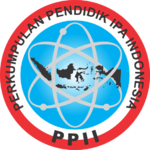Application of the Direct Instruction Method in the Learning System to Improve Student Learning Outcomes in Mathematics Subjects in 3rd Grade Elementary Schools
Abstract
The low learning outcomes of 3rd grade students at Public Elementery School 05 Mukomuko City in Mathematics subjects two-dimentional figure and their characteristics only 3 students (38%) who have the above grades of minimum criteria (KKM). With an average student evaluation score of 48. For this reason, it is necessary to improve learning to improve student learning outcomes. One effort to improve learning is the use of appropriate learning models with subject matter. In this case the researchers used a direct learning model (direct instruction) to improve student learning outcomes. Direct Learning Model is one of the active learning models that provides opportunities for students to share ideas, consider the most appropriate answers and answer questions verbally so as to foster student confidence in expressing ideas or answers in front of the class thus is expected to improve student learning outcomes. From the learning outcomes that researchers do turn out direct learning models (direct instruction) can improve student learning outcomes, this is evidenced by an increase in student learning outcomes in each study that researchers do. Learning that researchers do begins with the prasiklus stage which is carried out on Tuesday April 25 2017 with an average student learning outcomes of 50.8, improvement of the first cycle Tuesday May 2, 2017 the average student learning outcomes to 61, and improvement of Cycle II Tuesday 09 May 2017 the average student learning outcomes 81.5. Thus it can be concluded that using the direct learning model in Mathematics can improve student learning outcomes.
Downloads
References
Alidawati, A. (2019). Meningkatkan Hasil Belajar Siswa Dengan Menggunakan Media Gambar Berupa Rumah Adat Tentang Keragaman Budaya Di Indonesia Pada Pelajaran IPS Di Kelas V SD Negeri 03 Kota Mukomuko. Indonesian Journal of Social Science Education (IJSSE), 1(1), 78–84.
Bathgate, M., & Schunn, C. (2017). The psychological characteristics of experiences that influence science motivation and content knowledge. International Journal of Science Education, 39(17), 2402–2432. https://doi.org/10.1080/09500693.2017.1386807
Cabanilla-Pedro, L. A., Acob-Navales, M., & Josue, F. T. (2004). Improving analyzing skills of primary students using a problem solving strategy. Journal of Science and Mathematics Education in Southeast Asia, 27(1), 33–53.
Ismiyati, I. (2015). PENINGKATAN PRESTASI DAN MOTIVASI BELAJAR PPKn SISWA KELAS VIII A SMP NEGERI 2 GEDANGSARI - GUNUNGKIDUL MELALUI PEMBELAJARAN GROUP INVESTIGATION. Scholaria : Jurnal Pendidikan Dan Kebudayaan, 5(1), 39. https://doi.org/10.24246/j.scholaria.2015.v5.i1.p39-56
Kardi, S., & Nur, M. (2000). Pengajaran langsung. Universitas Negeri Surabaya.
Kawuri, M. Y. R. T., Ishafit, I., & Fayanto, S. (2019). Efforts To Improve The Learning Activity And Learning Outcomes Of Physics Students With Using A Problem-Based Learning Model. IJIS Edu : Indonesian Journal of Integrated Science Education, 1(2). https://doi.org/10.29300/ijisedu.v1i2.1957
Kusumah, R. G. T., Walid, A., Pitaloka, S., Dewi, P. S., & Agustriana, N. (2020). Penerapan Metode Inquiry Untuk Meningkatkan Hasil Belajar Materi Penggolongan Hewan di Kelas IV SD Seluma. JURNAL PENDIDIKAN MATEMATIKA DAN IPA, 11(1), 142–153. https://doi.org/10.26418/jpmipa.v11i1.34708
Machin, A. (2014). Implementasi pendekatan saintifik, penanaman karakter dan konservasi pada pembelajaran materi pertumbuhan. Jurnal Pendidikan IPA Indonesia, 3(1), 28–35. https://doi.org/10.15294/jpii.v3i1.2898
Masniwati, H. B. (2018). Upaya Meningkatkan Aktifits dan Hasil Belajar Peserta Didik kelas IV SD Negeri 45 Mataram Semester Satu Tahun Pelajaran 2017/2018 Melalui Penerapan Pendekatan Cooperative Learning (CL) Tipe Jigsaw. Jurnal Ilmiah Mandala Education, 4(1), 22–30. https://doi.org/2442-9511
Mertler, C. A. (2017). Action Research : Teachers as Researchers in the Classroom. The Modern Language Journal.
Muhamad Suhaimi Taat, & Mohd Yusof Abdullah. (2014). Impak Pengajaran dan Bimbingan Guru Pendidikan Islam Terhadap Motivasi dan Pembelajaran Terarah Kendiri Pelajar. Jurnal Pemikir Pendidikan.
Niyati, M., & Kurniah, N. (2016). Meningkatkan Kecerdasan Logika Matematika Melalui Permainan Tradisional Congklak. Jurnal Ilmiah Potensia.
Normaliani, N., Jamal, M. A., & Suyidno, S. (2013). Meningkatkan motivasi belajar siswa melalui penerapan model pengajaran langsung dengan metode demonstrasi. Berkala Ilmiah Pendidikan Fisika, 1(1), 21–30.
Rerung, N., Sinon, I. L. ., & Widyaningsih, S. W. (2017). Penerapan Model Pembelajaran Problem Based Learning (PBL) untuk Meningkatkan Hasil Belajar Peserta Didik SMA pada Materi Usaha dan Energi. Jurnal Ilmiah Pendidikan Fisika Al-Biruni, 6(1), 47. https://doi.org/10.24042/jpifalbiruni.v6i1.597
Riswanto, R., & Dewi, N. A. K. (2017). Peningkatan Keterampilan Proses Sains Melalui Pembelajaran Berbasis Laboratorium Untuk Mewujudkan pembelajaran Berkarakter. Jurnal Riset Dan Kajian Pendidikan Fisika, 4(2), 60. https://doi.org/10.12928/jrkpf.v4i2.8164
Sandi, G. (2005). Pengaruh Blended Learning Terhadap Hasil Belajar Kimia Ditinjau Dari Kemandirian Siswa. Jurnal Pendidikan Dan Pengajaran.
Sanjaya, W. (2011). Perencanaan dan Desain Sistem Pembelajaran (4th ed.). Jakarta: Kencana.
Sudjana, N. (2009). Penilaian Hasil Proses Belajar Mengajar. Bandung: PT. Remaja Rosdakarya.
Authors who publish with ISEJ: Indonesian Science Education Journal agree to the following terms:
- Authors retain copyright and grant the ISEJ: Indonesian Science Education Journal right of first publication with the work simultaneously licensed under Creative Commons Attribution License (CC BY 4.0) that allows others to share the work with an acknowledgment of the work's authorship and initial publication in this journal.
- Authors can enter into separate, additional contractual arrangements for the non-exclusive distribution of the published version of the work (e.g., post it to an institutional repository or edit it in a book), with an acknowledgment of its initial publication in this journal.
- Authors are permitted and encouraged to post their work online (e.g., in institutional repositories or on their website) before and during the submission process, as it can lead to productive exchanges, as well as earlier and greater citation of published work.












